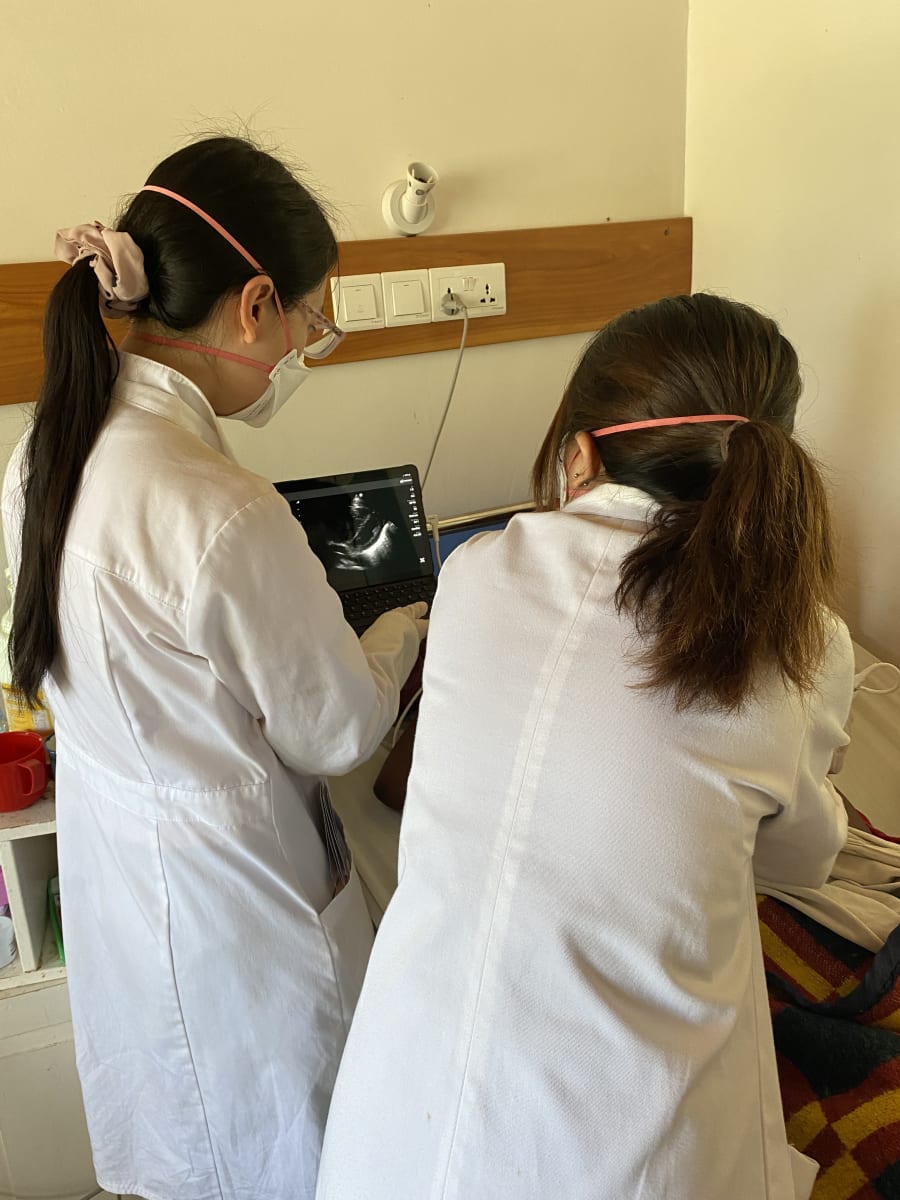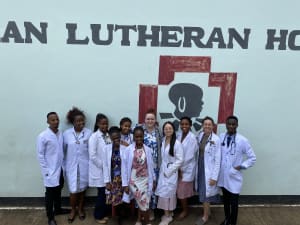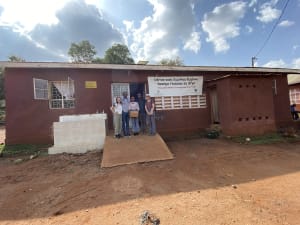The proposed duration of the project will be January 2023 to January 2024. We have already identified 6 local hospital affiliated personnel to participate in the online course. The course is divided into four modules each of which is associated with a post-test quiz. There is a final exam in which participants must achieve a score of 90% or more. Our course allows for the performance of each participant to be tracked. Following successful completion of the online course, an in-country ultrasound skills development session will be held and establish the technical skills needed to obtain a valid and interpretable ultrasound. Finally, a pilot screening program will be implemented in the pediatric clinics and hospitals affiliated with Selian and ALMC. Consent for study participation will be distributed at the end of a clinic visit or on the day of discharge. A signature from the child’s guardian will be required for study participation and will only be performed on assenting children. Each child and their guardian will be notified on the status of their screen upon completion of the ultrasound. All positive screens will be referred for a confirmatory echocardiogram using WHF criteria. For participants identified with any form of latent RHD, monthly penicillin will be provided and administered in clinic. At Selian, hospital personnel will assist families with health insurance registration. At ALMC, most patients and families will have health insurance to cover the cost of an echocardiogram and treatment. For patients with latent RHD, a follow-up echocardiogram will be obtained one year after enrollment. Results of all complete echocardiograms will be obtained from the local radiologist with parental consent. Any cases of symptomatic or severe RHD will be referred to a Pediatric Cardiologist.
RHD remains a major health concern in LMICs like Tanzania due to overcrowding, poor nutrition, and scarcity of health care resources. Our target population with be children aged 10-18. Children will be recruited from Selian Lutheran Hospital and Arusha Lutheran Medical Center (ALMC). Selian Lutheran Hospital is a lower resource, rural hospital. ALMC is a higher resource urban hospital serving patients with health insurance. Once training has been completed, we anticipate a total capacity of 30 children screened per week. The burden of latent RHD within these communities is currently unknown. Through our screening program, we will establish the local prevalence of latent RHD within these communities and facilitate their initiation onto monthly penicillin as appropriate.
The incidence of latent RHD varies among populations but in most developing countries, 1-5% of children screened have some form of latent RHD. Early identification, especially of more significant valvular abnormalities allows for early initiation of secondary prophylaxis. RHD screening programs hold promise to dramatically reduce deaths and disability as a result of RHD especially in the era of increasing ultrasound portability. Furthermore, across most LMICs, penicillin is readily accessible and there is often a high degree of local interest in disease reduction. Through continued expansion and development of RHD screening programs, our team hopes to demonstrate effective implementation strategies for secondary prevention programs around the world. Using our current template for screening, a single-view screening can be accomplished within one minute when executed by a well-trained ultrasonography team making it feasible to integrate within a pediatric clinic visit. Our project also aims to validate an online curriculum which has implications for more widespread distribution within the global health networks. Our training course builds local expertise in RHD screening protocols and provides avenues for local expansion and regional networking within local communities. This project fosters bidirectional skills development and scholarship while addressing a public health issue of high importance within the local community. In 2014, the first Global Health Chief residents spent 6 months working in Selian and ALMC and has now become an established, self-funded, and routinely filled position. There is a long-standing partnership between the UMN and the Arusha region with numerous residents rotating through this site every year. Medicine and Pediatric registrars from Selian and ALMC attend the Global Health Course at the UMN each May. Our project provides avenues for shared scholarship, visiting lectures, virtual training sessions, and collaboration.












During the Global Health Course at the University of Minnesota in May 2022, three Pediatric and Internal Medicine registrars from Arusha, Tanzania expressed interest in starting a Rheumatic Heart Disease screening program using point of care ultrasound (POCUS). I had the unique opportunity to travel to Arusha for 3 months to assist the local Tanzanian doctors with this project. Six Pediatric registrars were recruited and the curriculum was made accessible online as well as a USB drive. I held virtual sessions to go through each didactic module as well as hands-on ultrasound sessions for the participants to practice using the cardiac probe and obtaining the single view for rheumatic heart disease screening. The next steps of this project is to hold a skills examination for participants to determine whether the screening ultrasound is positive based on the World Heart Federation criteria. This project will be continued by local Tanzanian doctors in partnership with the University of Minnesota. The project provided bidirectional skills development, avenues for shared scholarship, virtual training sessions, and collaboration on an important health issue affecting children and young adults in the region.
The use of POCUS was expanded beyond this project. I taught internal medicine and pediatric Tanzanian interns and visiting medical students how to use POCUS to augment the physical examination and aid in diagnostics and management. The patients also benefit through expedited imaging, rapid diagnosis, and quicker time to treatment. This is especially important in a setting with few diagnostic tests available and patients with limited financial resources.
I am grateful for the generous donation from the Doximity Foundation to fund this trip! Thank you.